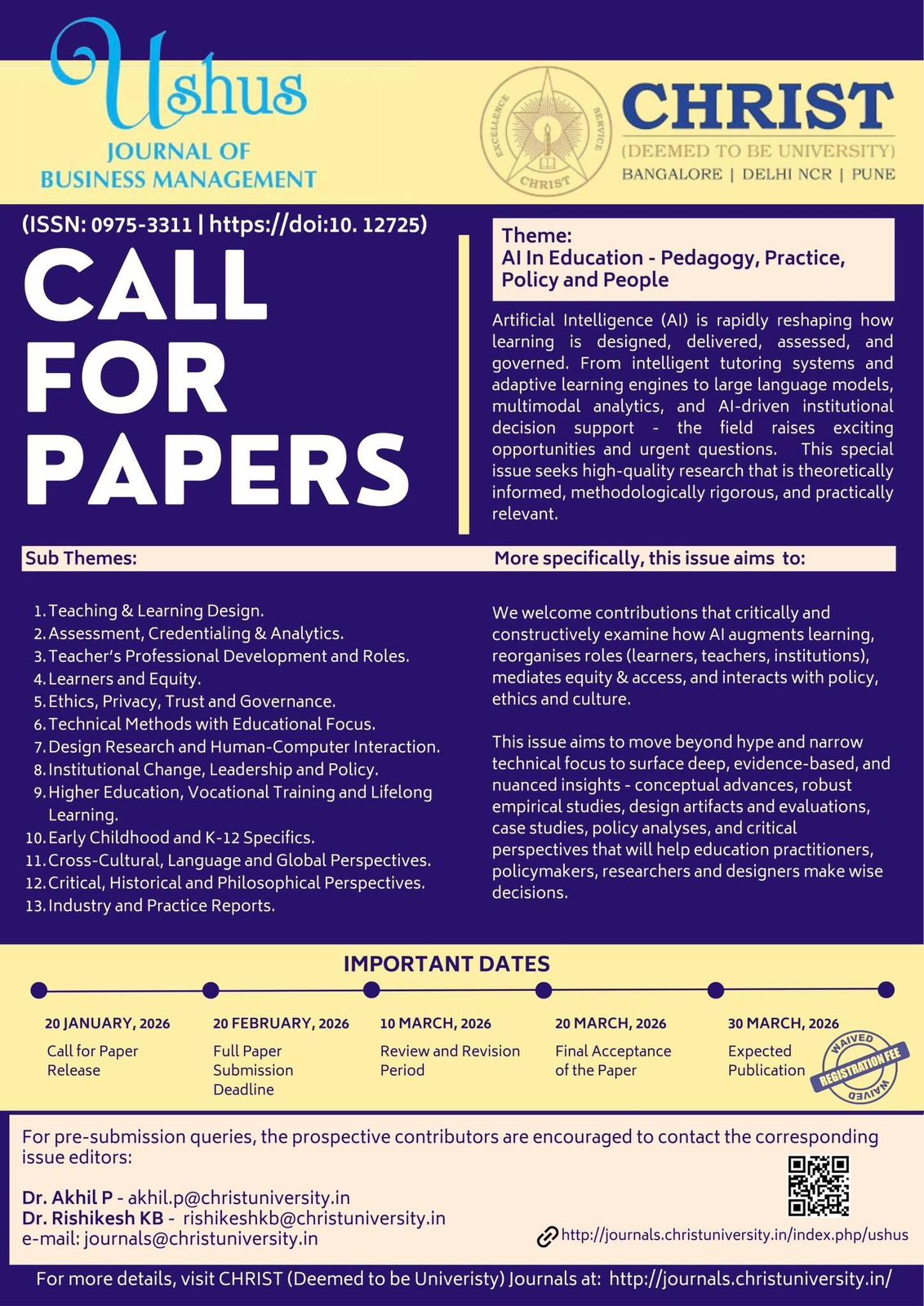UNDERSTANDING FINANCIAL CRISIS: A THEORETICAL ANALYSIS
DOI:
https://doi.org/10.12725/ujbm.2.1Abstract
Financial crises and their sub set banking crises have become worldwide phenomena in recent years. Understanding of financial crises assumes importance because the success of policy prescriptions to cure these crises depends to a large extent on the proper diagnosis of these crises. The objective of this paper is to provide a theoretical analysis to understand the financial crisis in a better way. The poper conjectures three stages in the financial crisis: confidence crisis, currency crisis and financial crisis. Paper shows that confidence crisis leads to the currency crisis and currency crisis in turn advances into the financial crisis. The paper also highlights the two-way linkage between currency crisis and financial crisis and its implications on policy suggestions. The two-way linkage between the currency crisis and financial crisis makes the policy prescriptions difficult. IMF policy to cure the East Asian crisis failed initially mainly because of this reason. The theoretical analysis reveals that a judicious mix of different policies would be the best remedy for the financial crisis of the type occurred in East Asia, though this would take some time to show positive results.



